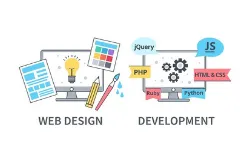Navigating Agile Principles: A Roadmap to Success
Introduction to Agile Principles
The Agile Manifesto was introduced in 2001 and therefore became the framework of a new model of project management where the team must depend on flexibility, collaboration, and customer satisfaction. Right at the heart of the Manifesto are the 12 Agile Principles, the navigational lanterns by which every Agile team around the globe is guided.
Here are the brief to Agile Principles
Customer Satisfaction Through Early Delivery: The first principle emphasizes the fact that customers outside a quantum technology enterprise must be sufficiently served by early and continuous delivery of commodities or services to the consumers. At Apponix Academy, we underscore the idea that customer needs are a starting point for solutions with this principle by putting a lot of focus on knowing customer needs and putting them first.
Welcome Changing Requirements: Agile is prepared to embrace change and always supports teams to accept such change continuously even the project lifecycle reaches a later stage. The courses we offer prepare learners for the uncertainty inherent in different economic frameworks and ever-changing customer tastes.
Deliver Value Frequently: The fourth principle underlines the significance of the constant presentation of the solutions so that the customers can capture the idea to their maximum benefit.
Break Silos: Agile empowers the involvement of the business stakeholders and the development teams to guarantee that the teams follow a common direction and are fully transparent to the stakeholders. The conduct of training emphasizes the need for the formation of cooperation as participants can cross and break through service delivery silos.
Empower Motivated Individuals: Through the assembly of motivated individuals using paychecks or motivational exercises and by giving the required support; Agile teams will be able to realize higher productivity and quality improvement.
Face-to-Face Communication: Although face-to-face communication is widely accepted as the best way forward, the typically virtual nature of modern workplaces demands video conference meetings. The course delivery of our training helps participants to come up with a set of useful communication methods, either through virtual or face-to-face means, to guarantee smooth collaboration and fast response across team distribution mediums.
Working Software as Progress Measure: The 7th principle focuses on the fulfillment of the working software rather than the total length of the process, as the core measure.
Maintain Sustainable Pace: Agile entails developing a gatekeeping culture to avert burnout and realization of accomplishments accompanied by independence altogether. Our project deliberately focuses on the preservation of an evergreen rhythm of production to have a healthy output with an emphasis on quality.
Continuous Excellence: Technical distinction, as well as good design, presents an effect of good agility and product. Our programs stress the importance of technical ability and offer the students immediate tools to be employed in their quest for more refined services.
Simplicity: The simplicity principle of Agile emphasizes minimizing complexity and reducing needless redundancy to increase value delivery. It is the key point of the training that teams should strive for simplicity while working on designing and implementing but ultimately, the solutions to the root problems have to be the result.
Self-Organizing Teams: In an Agile environment, self-organizing teams are empowered to be data-driven, using their creativity to adjust and adapt their work to varying needs.
Regular Reflection and Adjustment: Agile teams conduct retrospectives frequently to make adjustments to the practices if some don't work well. Among the courses we provide, there are specific modules that apply to retrospectives and feedback, providing our teams with the ability to adopt them as their styles of work continuously become better and change over time.
The role of the learners practicing in their life’s situations, through their experience, through their peers, and with their interest, the Apponix Academy accomplishes this. At Apponix Academy, we offer a variety of learning courses for Agile methods some can also help participants attain the necessary skills and competencies. Our courses combine classroom theoretical sessions with workshop exercises and real-world case studies, therefore, participants are 100% clear on the way of application.
Through our Agile courses, participants learn:
The Agile Methodology is the core of the principles that are followed in the process.
- Techniques of Agile planning, estimation, and execution do make an impact.
- Implementation of collaboration and communication focal points for Agile teams
- Tools and methodologies in Agile project governance and record keeping.
- Agile's key element is never-ending improvement, which is also crucial for sustainable agility.
Participating in Agile courses at the Apponix Academy empowers individuals with the capabilities and expertise to be a valuable part of the Agile process in their solving work-related issues and it is also another as they help their organization succeed as well.







